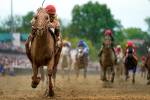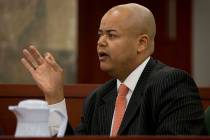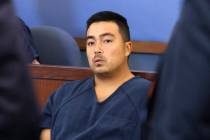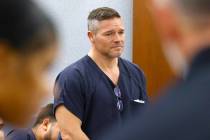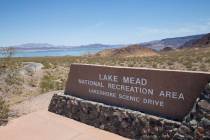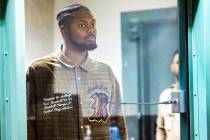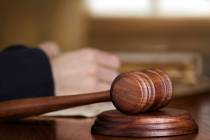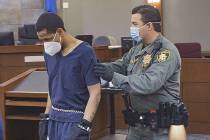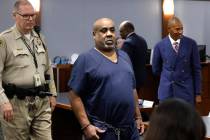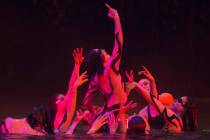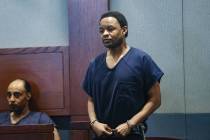Navy SEAL’s weapons trafficking case goes to jury
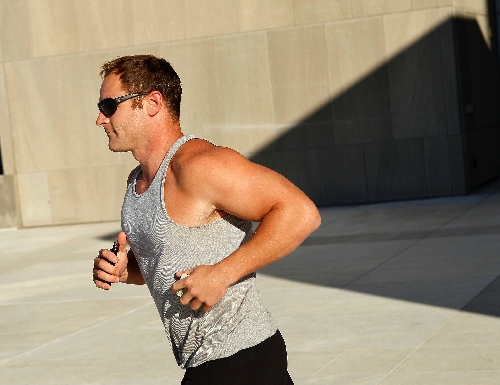
The lawyer representing Navy SEAL Nicholas Bickle addressed a Las Vegas jury Wednesday and accused federal agents of pursuing a criminal case against the war hero to generate publicity.
San Diego attorney James Pokorny suggested that agents with the Bureau of Alcohol, Tobacco, Firearms and Explosives hoped to justify the agency’s existence with the positive press.
“ATF wanted the prize,” Pokorny said during his closing argument in Bickle’s arms-trafficking case. “ATF wanted the ink. They wanted the publicity. That was the way to get it.”
In his rebuttal argument, Assistant U.S. Attorney Timothy Vasquez described the notion that representatives of the U.S. government would pick on one of their own servicemen as “offensive” and “reprehensible.”
The prosecutor said authorities went after Bickle because the trail of evidence led to him.
“It’s his words and his actions that will convict him,” Vasquez told the jury.
Attorneys spent five hours presenting their closing arguments Wednesday, and Senior U.S. District Judge Roger Hunt has asked jurors to start deliberating this morning . The trial began Sept. 19.
Prosecutors have identified Bickle, a petty officer first class, as the ringleader of a conspiracy to deal unlawfully in firearms. Authorities allege the San Diego-based SEAL brought machine guns and other weapons into the country from Iraq for his own profit.
Three other defendants, including two Las Vegas men, have accepted plea bargains and admitted selling weapons for Bickle. Bickle, 33, was the only military member charged in the case.
During his closing argument, Assistant U.S. Attorney Phillip Smith said prosecutors had kept their promise to “build a wall of evidence” against Bickle, “and it sort of towers over the defendant like the Great Wall of China.”
Pokorny, in turn, said he had kept his promise to prove that the case stemmed from “lies, drug use and hidden agendas.”
The investigation began in June 2010 when a confidential informant told authorities that Las Vegas resident Omar Aguirre, a felon, was involved in firearms trafficking.
About two months later, after an undercover detective had bought machine guns from Aguirre, investigators confronted the suspect and persuaded him to cooperate in the investigation.
“Instead of arresting him, they hire him,” Pokorny said.
Aguirre, who was convicted in 1999 in New Mexico of possession with intent to distribute more than 100 pounds of marijuana, and Las Vegas resident Andrew Kaufman pleaded guilty in the firearms case in December.
Colorado resident Richard Paul, Bickle’s longtime friend, pleaded guilty in January and testified against him during the trial.
Vasquez acknowledged that jurors heard evidence of drug use by all three of Bickle’s co-defendants, but the prosecutor said Bickle chose to participate in the conspiracy with them.
As evidence of the government’s “hidden agenda” to generate publicity, Pokorny pointed out that authorities changed the name of the investigation to Operation Trident after it had started. The trident is the symbol used by Navy SEALs.
“The government has on blinders, tunnel vision,” Pokorny argued.
The defense attorney said prosecutors presented no witnesses who saw Bickle with the arsenal of illegal weapons shown in court. Prosecutors also presented no DNA or fingerprint evidence, he said.
“I haven’t heard the word fingerprint until I stood here today on October 5 and said the word,” Pokorny told the jury.
He said prosecutors had left the jury with only phone calls, emails, text messages and “snitches.”
Bickle returned from his second deployment to Iraq in March 2009. Smith said Bickle later used his own camera to take pictures of several illegal weapons, “almost like a pirate taking pictures of his treasure chest.”
Authorities found two pistols when they searched Bickle’s bedroom after his November arrest. They also found a pistol in his storage unit.
Evidence indicated all three weapons had been given to Iraqi security forces by the United States.
Prosecutors have said more than 70 firearms, including about 30 machine guns, were sold in the conspiracy. Prosecutors said evidence established that Bickle set the prices for those firearms and received most of the profits from the sales.
In addition to the conspiracy charge, Bickle faces charges of dealing in firearms without a license, possession and transfer of machine guns, possession and sale of stolen firearms, receiving and concealing property of the United States, and distributing explosives to a non-licensee.
Contact reporter Carri Geer Thevenot at cgeer@reviewjournal.com or 702-384-8710.








